
NCEI Employee Awards for CISESS Scientists
The National Centers for Environmental Information (NCEI) Employee Awards Ceremony was held on December 6th.

The National Centers for Environmental Information (NCEI) Employee Awards Ceremony was held on December 6th.
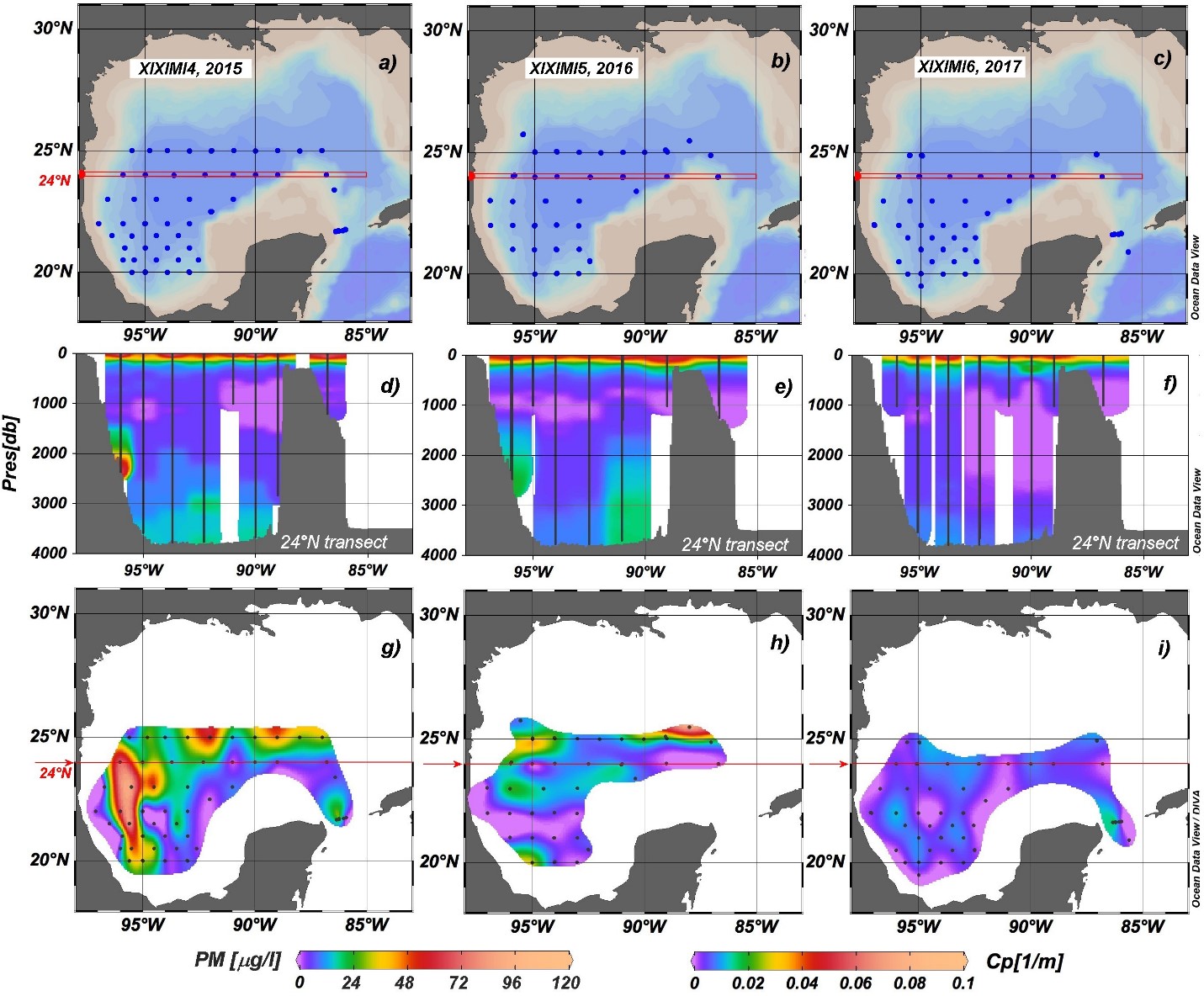
Alexey Mishonov, ESSIC/CISESS Associate Research Scientist and NOAA Affiliate, has a new article in Marine Geology about the nepheloid layers in the deep Gulf of Mexico.
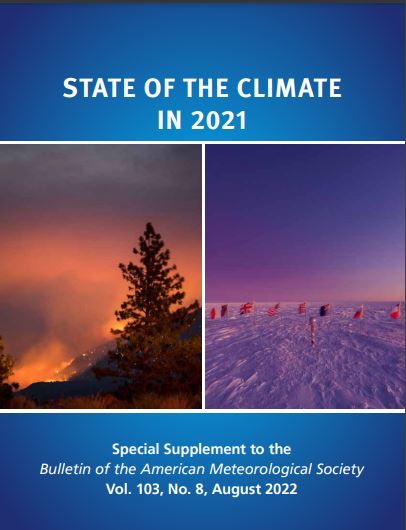
Several ESSIC/CISESS scientists have contributed to State of the Climate, the annual peer-reviewed summary of the global climate published by the American Meteorological Society. The recently-released State of the Climate in 2021 is the 32nd issue and features six chapters authored by dozens of international scientists. ESSIC/CISESS scientists Bob Adler, Jeannette Wild, Alexey Mishonov, Chelsea Parker, and Sinead Farrell contributed to the chapters “Global Climate”, “Global Ocean”, and “The Arctic”.
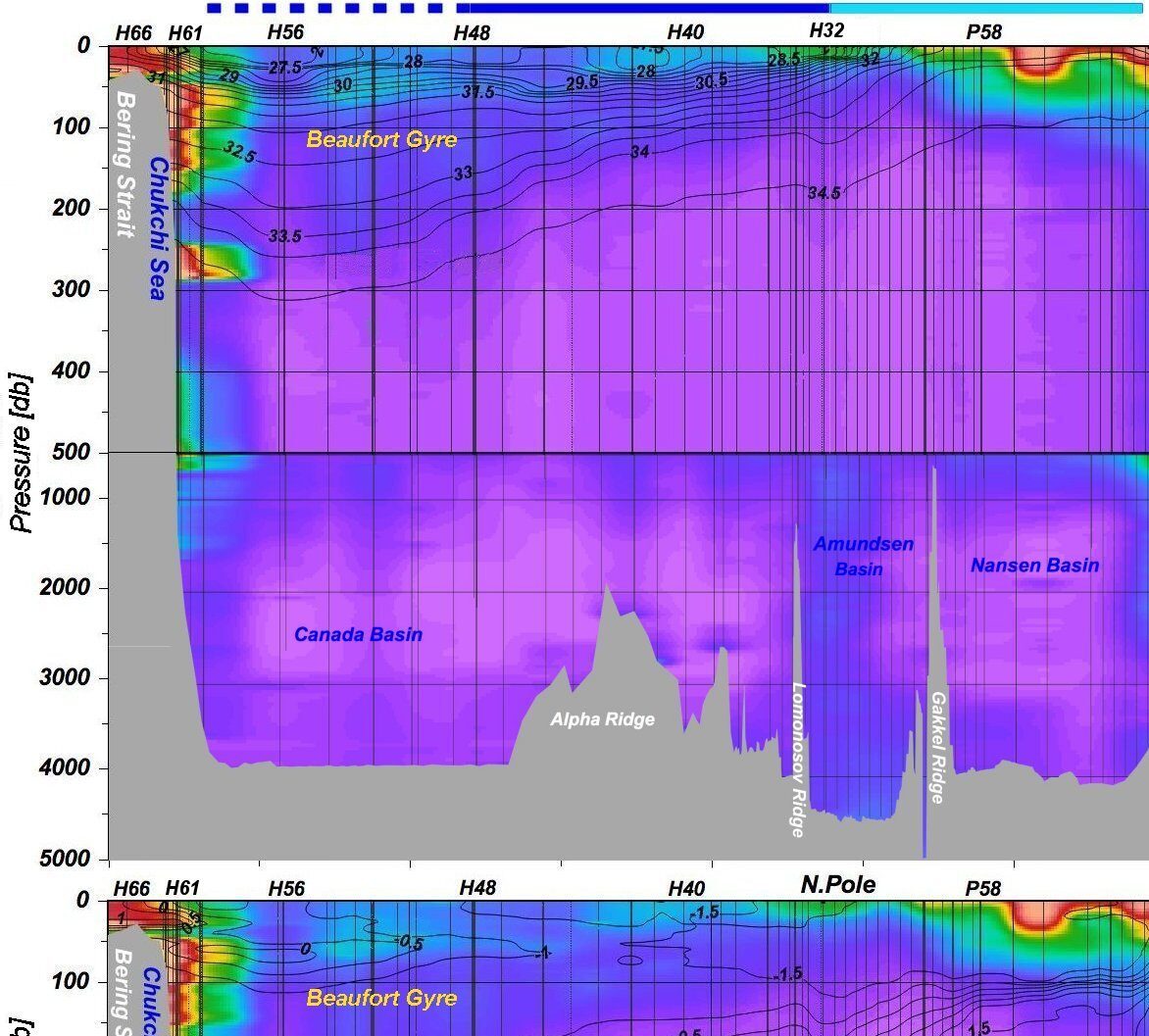
Alexey Mishonov, ESSIC/CISESS Associate Research Scientist and NOAA Affiliate, has created the first trans-Arctic section of beam attenuation to estimate particle distribution.
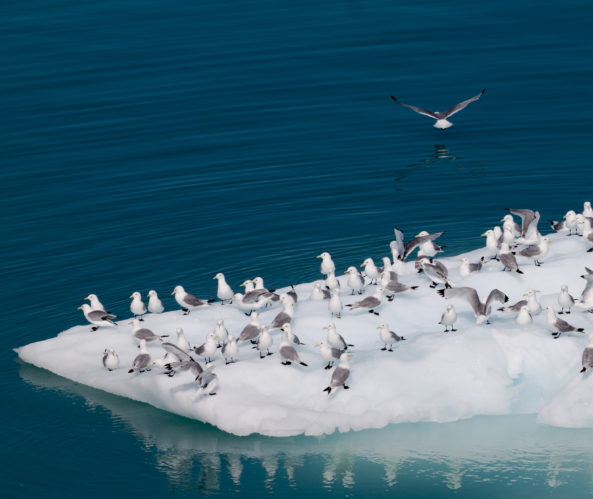
2021’s world ocean was the hottest ever recorded, beating out even last year’s record high temperatures, finds Alexey Mishonov, Jim Reagan, and a team of international scholars.
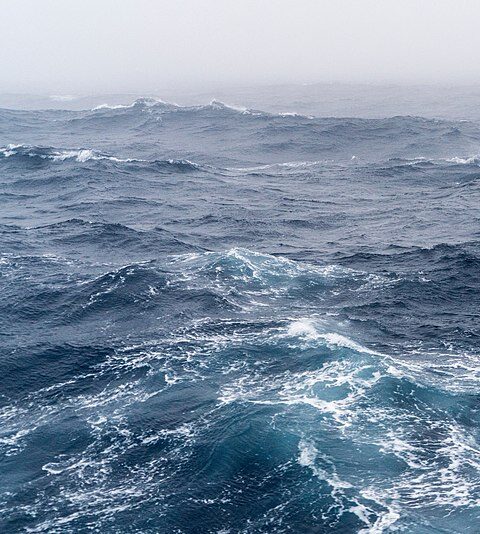
Alexey Mishonov, ESSIC/CISESS Associate Research Scientist and NOAA Affiliate, has a new article in press and published in the journal Limnology and Oceanography titled “Recent Warming and Decadal Variability of Gulf of Maine and Slope Water”.
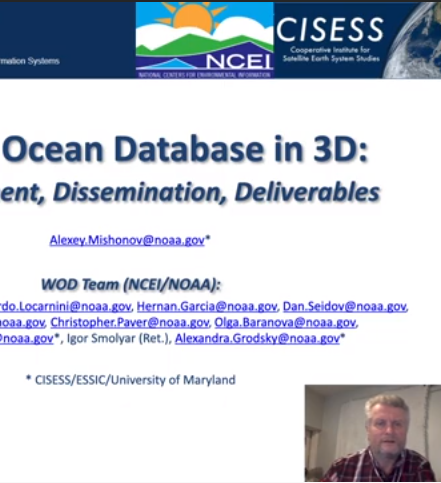
Alexey Mishonov, ESSIC/CISESS Associate Research Scientist, participated in the 2021 International Conference on Marine Data and Information Systems, held virtually this year between April 12-14. Mishonov presented a keynote talk titled, “World Ocean Database in 3D: Development, Dissemination, Deliverables”, which discussed the work completed alongside the World Ocean Database team, composed of ten other NCEI/NOAA scientists.

CISESS Scientists Alexey Mishonov and Jim Reagan are co-authors on a new article titled “Upper Ocean Temperatures Hit Record High in 2020” published in the April 2021 issue of Advances in Atmospheric Science.
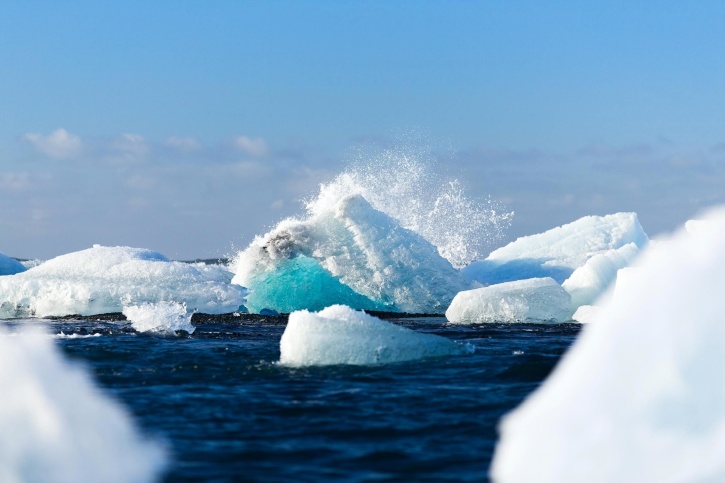
Since the industrial revolution, the emission of greenhouse gasses by human activities has been mainly responsible for global warming. This increased concentration of greenhouse gases in the atmosphere has caused an energy imbalance in the Earth’s climate system, with the world’s oceans absorbing 90% of this excess heat. This has led to an increase in ocean heat content (OHC) and sea level rise. In 2000, Levitus et al. developed the first global OHC time series, identifying a robust long-term ocean warming from 1948-98. Since then, many other analyses of global and regional OHC data have been performed.

Recently, ESSIC/CISESS Associate Research Scientist Alexey Mishonov and colleagues from NOAA’s National Centers for Environmental Information (NCEI) announced the release of the Gulf of Mexico